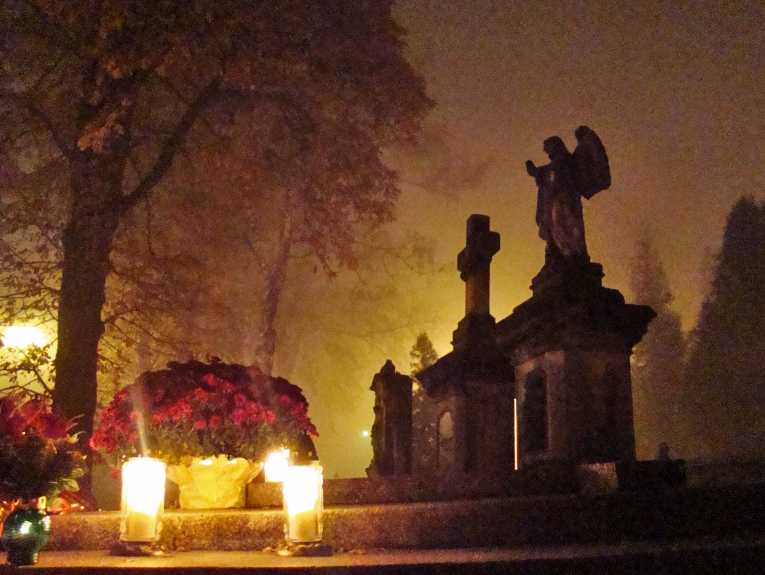
Roman Catholics worldwide observed All Saints Day on Tuesday and All Souls Day on Wednesday, days on the liturgical calendar set aside to remember deceased loved ones—to visit their graves and to pray for their time to be shortened in what Catholics believe is a place called Purgatory.
“Part of the Church’s teachings, when you pray for the dead and go to the cemetery, you actually gain indulgence. There’s indulgence when you pray for the person who died,” Roy Bellen, head of the Archdiocese of Manila’s Archdiocesan Office of Communications, told the Philippine Inquirer this week.
An indulgence is defined as an “extra-sacramental remission of the temporal punishment due, in God’s justice, to sin that has been forgiven, which remission is granted by the Church in the exercise of the power of the keys.” Catholics believe that not all those saved go directly to Heaven upon death, but some are held in Purgatory, where they must have their sins purged for an unknown period of time.
“We have no way of really knowing when they get there (to Heaven), but still we pray for them as much as they pray for us also,” Bellen said. “Hopefully it becomes a habit for us that we pray.”
Some observe All Saints Day or All Souls Day by bringing food or other goods once enjoyed by the deceased to the grave site.
“The offerings would also include, apart from favorite foods of their departed family members, wine, alcoholic beverages, tobacco, cigarettes and other items the deceased had enjoyed when he or she was still alive,” the Manila Bulletin outlines.
“Members of Poland’s tiny Roma minority enacted a tradition of their own, drinking vodka at gravesites,” the Associated Press reports.
Jorge Bergoglio, also known as “Pope Francis,” has visited cemeteries for All Souls Day throughout his tenure. On Wednesday, he held a mass at Prima Porta Cemetery in Rome, Tweeting beforehand, “With faith we visit the graves of our loved ones, where we can also pray for those who no one remembers.”
But Mike Gendron, a former Roman Catholic who leads Proclaiming the Gospel Ministries in Plano, Texas, told Christian News Network that such practices are unbiblical.
“No where in the Bible do we ever see any one of faith praying for the dead. It is fruitless because God’s Word says, ‘It is appointed for man to die once, and after that comes judgment (Heb. 9:27),'” he outlined. “At the moment of death, man’s eternal destiny is sealed and cannot be reversed. Those who were justified by faith in Jesus Christ will enter immediately into Heaven; those who die without Christ will immediately experience the second death, which is the eternal lake of fire (Rev. 20:14).”
He said that the notions of Purgatory and the obtaining of indulgences to assist a loved one in Purgatory also are unscriptural.
“The concept of Purgatory, as a place of purification is not only unbiblical, it dishonors and discredits the Lord Jesus Christ,” Gendron explained. “According to Scripture, ‘The blood of Jesus purifies ALL sin (1 John 1:7).’ ‘When He (Jesus) had made purification of sins, He sat down at the right hand of the Majesty on high (Hebrews 1:3).’ Jesus ‘gave Himself for us that He might … purify for Himself a people for His own possession (Titus 2:14).'”
He noted that it was the offering of indulgences that sparked the Reformation nearly 500 years ago.
“I would encourage Catholics to submit the supreme authority of God’s Word to determine what is true and what is false,” Gendron stated. “We must test every teaching and tradition of men through the lens of Scripture (Acts 17:11). Hold on to what conforms to God’s Word and reject everything that opposes or nullifies God’s Word. It is the Word of God that will judge us on the last day (John 12:48).”
Become a Christian News Network Supporter...


